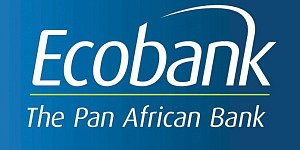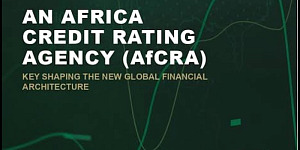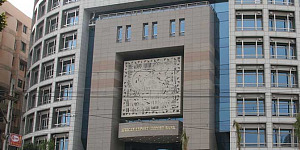Fitch Ratings has revised African Export-Import Bank's (Afreximbank) Outlook to Stable from Negative and affirmed the Long-term Issuer Default Rating (IDR) at 'BBB-'. The Short-term IDR has been affirmed at 'F3'. A full list of rating actions can be found at the end of this rating action commentary.
KEY RATING DRIVERS
The revision of the Outlook to Stable reflects improvements to Afreximbank's capital position as a result of ongoing capital-raising measures. The affirmation reflects the bank's reasonable loan quality due to its focus on short-term, secured trade finance facilities and sound liquidity. The potential for shareholders' support in case of need remains limited.
Capitalisation has improved since end-2013. In September 2014, Afreximbank's shareholders decided to increase the bank's paid-in capital by USD500m by end-2016. As of end-June 2015, the bank had received payments of USD246m and is expected to secure an additional USD131m by year-end. Fitch expects further, albeit lower, capital contributions in 2016.
Rapid growth in lending in recent years has put pressure on the ratings. As a result of the capital increase, the equity-to-asset ratio has improved to 19.3% at end-June 2015 (2013: 16.2%) and is expected to improve further as lending growth will be supported by improved capitalisation.
The headline non-performing loan (NPL) ratio has improved since end-2014 but after adjusting for past due but not impaired loans credit quality is broadly stable. However, the share of lowly-rated loans has grown significantly in 2014 and in 1H15, which may translate into higher NPLs in the future.
Afreximbank's exposure to Nigerian borrowers has increased as of 1H15 and 2014 (41% and 44% respectively, compared with 37% at end-2013), as a result of increased lending activity in the wholesale banking and oil sectors. This exposure is only partially mitigated by collateral. Fitch regards the bank's exposure to the Nigerian economy (especially its banking sector) as a weakness.
The bank's liquidity profile is supported by limited refinancing risk owing to the short-term tenor of loans and to an increase in the average residual maturity of funding. Funding is backed by a large buffer of available committed credit facilities, the vast majority of which are granted by development institutions. Afreximbank maintains access to capital markets.
Unlike other multilateral development banks, Afreximbank is a dividend-distributing institution, with higher profitability than peers. Return on average equity reached 12.9% at end-2014, compared with 13.5% at end-2013. Shareholders have waived dividends in the past to strengthen reserves, and it is possible this may occur in the event of a need to preserve internal capital generation.
The average credit quality of shareholders is fairly weak. Afreximbank's capital is owned by 128 shareholders, including states, public and private entities. However, their capacity to support the bank remains weak: as at end-June 2015, the average credit quality of callable capital subscribed by key shareholders was 'B+'.
RATING SENSITIVITIES
The Stable Outlook reflects Fitch's assessment that upside and downside risks to the rating are evenly balanced. Nonetheless, the following risk factor could trigger positive rating action:
-Continued strengthening of capitalisation metrics
The following risk factors could individually or collectively trigger negative rating action:
-Deterioration in capitalisation and/or too rapid lending growth.
-Deterioration in asset quality, translating into an increase in impaired loans, or rapid growth of lending in countries at risk and/or a material lengthening of the average maturity of loans in the future.
KEY ASSUMPTIONS
Fitch assumes no material change in the economic growth outlook in Africa and no significant change in commodity prices in the short-term.
The full list of rating actions is as follow:
- Long-term IDR: affirmed at 'BBB-', Outlook Stable, revised from Negative
- Short-term IDR: affirmed at 'F3'
- USD 3bn EMTN programme: affirmed at 'BBB-'
- Senior unsecured notes: affirmed at 'BBB-'









































